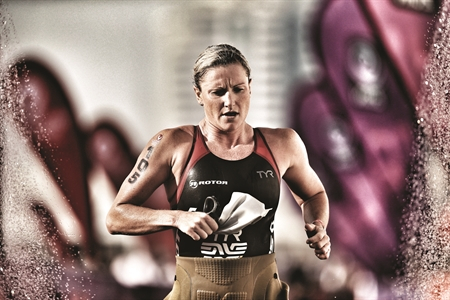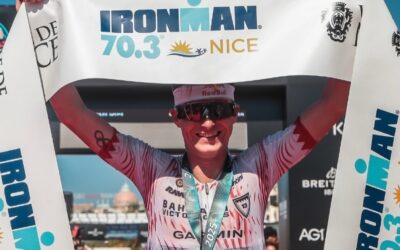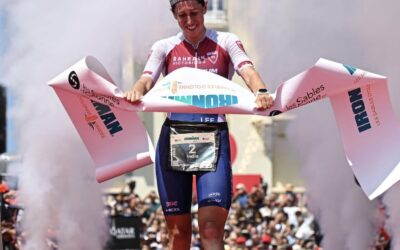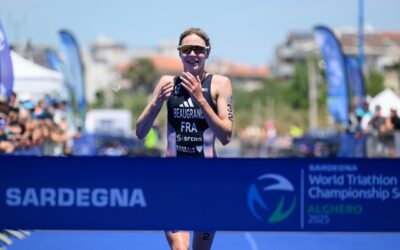Coaches are the silent partners of athletic success. For every athlete crossing an elite finish line there will be at least three of four coaches that have helped to coerce that performance along the way. Coaches are the directors of athletic performance yet they never make the billboard posters or runway presentations – that is except the dodgy ones who flout the rules.
Imagine where you would be without the good teachers you have had through your life – that’s were athletes would be without good coaches, absolutely nowhere.
Coaches and teachers are no new concept to children, but as we age we become less accustomed to observing the role of such guidance and influence. We tend to avoid structure and programming in our lives in preference to flexibility and freedom. We don’t have time to commit to a program; we can’t afford the expense of expertise; we don’t want to take it too seriously.
What many, new and old athletes, tend to forget is that, like any productive relationship, coaching relationships mature and change over time. A good coach is adaptable to progress, responsive to experience and specific to circumstance. An adult beginner needs to begin with a teaching coach, just as a child would. An elite racer correspondingly needs an equally elite coach who focuses on small detail and marginal gains.
A lot of advice about coaching ends here – with the basic premise that having a coach is a good thing. Actually, having a bad coach can be worse than not having one at all – they can damage your health anatomically and physiologically.
It is selection of the right coach that is of paramount importance to enable athletic progression.
There are many different environments that allow you to work with coaches. One would think higher attention and personalization would correlate with better, faster progression, but it’s important to remember that correct, insightful feedback for a minute is more valuable than two hours of incorrect feedback.
There are brilliant coaches in club set ups that can find sufficient time for everyone in the pool or on the track. Small amounts of information; a single technique point or one training principle will bring more progression than ‘paralysis by analysis’; a term stolen from one of the best coaches I ever had.
How to select the right coaching environment for you
Beginners
I strongly believe that the first stages of triathlon are best spent in a club environment; in squad swim sessions; on social runs and in group rides. If an adult swimmer asks me how to improve their swim my first pointer is, without exception, ‘swim with a squad coach’.
Local triathlon clubs are the simplest and most productive step you can take to beginning to work with a coach. Although the qualification certification and the experience of coaches vary immensely across clubs – triathlon club coaches are all passionate about the sport. That crucial quality emulates through the group sessions that clubs provide.
Clubs are also the gateway to understanding competitive triathlon – their members will have encountered a wide experience of races and distances and can provide great sources of inspiration and information to begin to set a goal for your training.
All children that enjoy sport- thrive in a club environment. Sport, for them, should begin as social recreation, group activity and outdoor play and although we tend to take ourselves a little more seriously – it is no different for adults.
Club set ups can be beneficial right up to elite level, many professionals still enjoy the club runs and swim squads interspersed with more specific sessions.
Age Group Camps
These are a good introduction to more comprehensive structures of training, often with the added bonus of happening in exciting places with different terrains.
There are levels of camps for beginners, enthusiasts up to elite racers. Select realistically and they can help negotiate a decision whether to increase to the next tier of training commitment or if a club set up is adequate for you.
Camps are best entered with at least a good state of general fitness level because fitness is incremental, can’t be rushed and are best built over a longer period of time. Camps are good rewards for sustained endeavour of training and can accelerate knowledge and momentum for a limited, intense period.
Personal Coaches
Age group coaches are widely available online or locally and are advisable if you decide to take on anything more than a half IM distance seriously. Employing a coach is, in some ways, the easiest part of establishing a relationship. It is the communication, the reliability, the feedback and relationships of coaching that procure success. That feedback and communication requires attention on both sides of the relationship. Deciding to employ a coach is not only a financial investment- it houses responsibility and accountability as well.
Elite Coaches
Elite Coaches know the elite game and elite training. They are highly specialized and concentrate on areas of marginal gains to already decent athletes. Nobody hiring an elite coach should be learning to swim, learning to ride or learning to run – they are honing their race skills to provide a faster result.
An elite coach assigned to the right competitor can produce incredible improvement. Whilst there is progression, reward and podiums for these athletes, there is, in all probability, a higher amount of sacrifice, financial investment, risk and responsibility expected of these athletes.
This is my area of expertise. At Cunnama Coaching we only do elite coaching, this is the only way I have ever been coached and the only way I know to coach. There is no limit or restriction to contact time between coach and athlete – whatever is needed to get the best from an athlete is required of both athlete and coach.
How do you choose the right personal coach for you?
Ability: Prowess of the coach. Their qualifications or experience in the coaching should not just be ‘success’ but ‘relevance of success’ to the level of athlete. Beginners need basic principals of training not the elite sessions. A club coach who loves the sport and helping people enter into it is probably a better coach for a beginner than a World Champion athlete or coach.
Communication potential: Different kinds of people prefer to communicate in different ways. Some like mass written communications that contain a lot of information, others like consistent sound bites to motivate them daily. Some athletes like the phone, others text message. Good coaching is intrinsically linked to good communication between athlete and coach.
Price point: Good coaches need to be paid well, as in any profession excellence is an investment and expertise should come with a price. The threshold to expense should always be set according to the importance that athletic progression pays in your life as a whole. More attention and more experience will align to higher coaching fees but that expense is pointless if it is unsustainable time wise or commitment wise. There needs to be mutual understanding of level, of time availability and of ambition in triathlon between coach and athlete.
Athlete centered coaching: Some of the most ‘acclaimed’ coaches in the world are not sufficiently athlete focused but the BEST coaches always are. If a coach has a history of short-term athlete relationships then it may indicate a problematic pattern – even if those short-term relationships bought success.
Select a coach that displays true passion for athlete development rather than as a career or a revenue generating business. That is not to say coaches should work for free – their time and expertise is as valuable as any other professional person but it should never feel like they are working pro rata, to a timesheet or prescribing programs on mass without personalization. That is not good coaching.
How to leave a coach
Inevitably, like most working relationships there comes a time where circumstance or communication breakdowns and it becomes time to part ways with a coach.
If either side of a relationship is not fulfilling the expectations of the other then deterioration of a coaching relationship can happen quickly and catastrophically, leaving both coach and athlete angry and frustrated. Constant and immediate communication of issues is key in preventing such disintegration.
Honesty and clarity are prerequisites when terminating a coaching relationship. If a coach is athlete focused then it is possible to salvage a lasting relationship post break up, if not then that relationship potentially wasn’t worth the effort of preservation anyway.
Leaving a coach is a form of rejection for the coach. There will be stages of grief, anger and acceptance, as in any close relationship. Respect, communication and gratitude always help in such matters and allow all parties to move on with grace.



